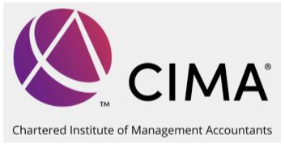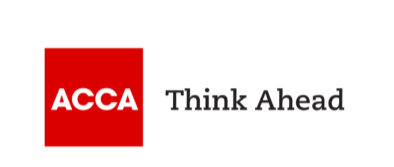PROGRAMME OVERVIEW
Graduates have a choice of going into direct practice either in the public or private sector, or go on to pursue professional accountant certifications such as the CPA (Certified Public Accountant), the ACCA (Association of Chartered Certified Accountants), and CIMA (Chartered Institute of Management Accountants), while meeting work requirements doing training at accounting firms. Accountants are some of the most highly esteemed professionals whose elite place in society has never been challenged.
Our curriculum is designed in collaboration with a team from employers, industry experts, and academia. Therefore, students will learn theories combined with hands-on applications and practical skills. These skills of researching and critical thinking, reading and analyzing financial statements, creating reports and presentations and interacting with stakeholders, will enable students to be employed right away.
During the duration of the programme, students will explore various depths and breadths of cost accounting, financial accounting, managerial accounting, corporate accounting, accounting information systems, auditing and assurance, international financial reporting standards (IFRS), generally accepted accounting principles (GAAP), stakeholder values and ethics, issues in financial reporting, information technology for accountants, quantitative methods, corporate finance, organizational behaviour, business economics, business law, company and association law, taxation law and practices, financial statements and investment analysis, cost management, innovation and entrepreneurship, and advanced business communication.
When students graduate, they will be full-fledged accounting graduates, ready and able to correctly and effectively prepare profit and loss statements for business entities; establish accounting practices and procedures for start-up companies and provide sound advice on the management of these; analyse budgets and other financial information and offer advice on how costs can be reduced and savings maximized; produce budgets for businesses and implement strategies for minimising costs; maintain accurate and timely records of company accounts; improve business efficiency in finances; compute statements of taxes owed, prepare tax returns and ensure that they are filed correctly and that payment is made on time; and ensure compliance with laws and regulations.
Because an accountant’s work is no easy task, MAHSA’s Bachelor of Accounting with Honours, will ensure that its graduates are fully equipped with all the necessary knowledge that is expected of a professional accountant.
 Programme Structure
Programme Structure
| YEAR | SUBJECT | SUBJECT CODE |
|---|---|---|
| YEAR 1 SEM 1 | English for Academic Writing | ENG6143 |
| Developing Inquisite Scientific Mind | CIT6143 | |
| Business Communication | BUS6123 | |
| Financial Accounting I | ACC6123 | |
| Mental Health 2 | MCH6143 | |
| YEAR 1 SEM 2 | Financial Accounting 2 | ACC6133 |
| Principles of Marketing | MKT6113 | |
| Economic Principles and Issues | ECO6113 | |
| YEAR 1 SEM 3 | Organisational Behaviour | MGT6183 |
| Business Analytics | MTS6113 | |
| Cost Accounting | COS6113 | |
| Digital Skills Proficiency | DAL6143 | |
| Entrepreneurship | ENT6113 | |
| Human Values for Sustainability | MCV6143 | |
| YEAR 2 SEM 1 | Business Law | LPG6233 |
| Financial Reporting 1 | CFR6213 | |
| Cost Accounting | COS6113 | |
| Penghayatan Etika dan Peradaban | MPU3183E | |
| Taxation 1 | TAX6213 | |
| Financial Management | FIN6223 | |
| Ethics, Governance & Accountability | LPG6223 | |
| YEAR 2 SEM 2 | Financial Reporting 2 | CFR6223 |
| Taxation 2 | TAX6223 | |
| Management Accounting | COS6213 | |
| YEAR 2 SEM 3 | Company Law | LPG6244 |
| Corporate Reporting | CFR6234 | |
| Accounting Information System | ACC6254 | Elective 1 (Corporate Finance) | FIN6234 |
| Auditing & Assurance Services 1 | ACC6264 | |
| YEAR 3 SEM 1 | Public Sector Accounting | ACC6384 |
| Elective 2 (Strategic Management) | MGT6363 | |
| Business Research Methods | RSC6333 | Auditing & Assurance Services 2 | ACC6374 |
| Advance Corporate Reporting | CFR6344 | |
| YEAR 3 SEM 2 | Accounting Theory & Practice | ACC6394 |
| YEAR 3 SEM 3 | Industrial Training | INT6338 |
 Entry Requirement
Entry Requirement
| ACADEMIC QUALIFICATION | REQUIREMENTS |
|---|---|
| Matriculation/Foundation | Matriculation/Foundation qualification or its equivalent with a minimum CGPA of 2.50, and credits in Mathematics and a pass in English at SPM level |
| STPM | A pass in STPM or its equivalent, with a minimum Grade C+ (GP 2.33) in any TWO (2) subjects and credits in Mathematics and a pass in English at SPM level |
| STAM | A pass in Sijil Tinggi Agama Malaysia (STAM) with a minimum grade of Jayyid, (good) and credits in Mathematics and a pass in English at SPM level |
| A-Levels | A pass with Grade D in any TWO (2) subjects and credit in Mathematics in SPM level or equivalent |
| IB | Pass with a minimum score of 24 |
| UEC | Pass with minimum grade B in any FIVE (5) subjects (including Mathematics and any other FOUR (4) subjects) |
| SAM/AUSMAT/SACE | Pass in any TWO (2) subjects with ATAR score of 50% |
| MUFY/CIMP I CPU/INDIAN PRE U/HSC SYDNEY AUST/UNSW/AMERICAN HIGH SCHOOL WITH AP/VCE/ONTARIO/NCEA LEVEL3/NEW ZEALAND BURSARY | Pass with 50% in any TWO (2) subjects |
| Diploma | A diploma in accounting or related field, or its equivalent with a minimum CGPA of 2.50, and credits in Mathematics and a pass in English at SPM level |
| Other | Other relevant equivalent qualifications approved by Malaysian Government |
| APEL | Age 21 years & above and experience in related field |
| English Requirement | IELTS: 5.5 | TOEFL PBT: 550 | MUET: BAND 3.5 |
 Why Study at MAHSA
Why Study at MAHSA
-
Demonstrate to postgraduate programmes or future employers that the student can do independent, creative work and enhanced students experience through many platforms such as:
Physical and virtual libraries
Learning Management System (LMS)
HigMy interactive cyber classrooms
Social enrichments via cultural diversity among students
Workshops and seminars
Immersion teaching approach by experienced and qualified lecturers.
Focusing on student functional working skills.
Industry-relevant curriculum fully accredited by MQA resulting to high employability.
-
Develop competencies and skills that will be useful throughout life, in many different contexts, such as:
Entrepreneurial competency
Mental discipline
Intellectual judgment and independence
Self confidence
Ability to plan and implement a project and complete it
Ability to meet a challenge and succeed
Contribute to the knowledge of the world
Discover life's intellectual passion
-
CIMA (Chartered Institute of Management Accountants) is a global professional body for management accountants. It offers the **CIMA qualification**, which focuses on business strategy, financial management, and leadership skills. The qualification involves completing exams, practical experience, and an ethics module. CIMA is recognized worldwide and prepares individuals for high-level roles like financial management and business leadership.
Exemption Paper:BA1 Fundamentals of Business Economics
BA2 Fundamentals of Management Accounting
BA3 Fundamentals of Financial Accounting
BA4 Fundamentals of Ethics, Corporate Governance, and Business Law
E1 Managing Finance in a Digital World
P1 Management Accounting
F1 Financial Reporting
-
The ACCA (Association of Chartered Certified Accountants) is a globally recognized professional accounting body that offers the ACCA qualification, which certifies individuals as chartered accountants.
Key features of ACCA:It focuses on core areas like accounting, auditing, taxation, financial management, and ethics.
The qualification includes 13 exams, practical experience, and an ethics module.
ACCA members can work in a variety of finance and accounting roles worldwide.
If you have a degree in accounting or finance, you may be eligible for exemptions from specific exams in the Applied Knowledge or Applied Skills levels.
Exemptions are determined based on the accredited status of your prior qualification with ACCA.
i. Business and Technology
ii. Management Accounting
iii. Financial Accounting
iv. Corporate and Business Law
v. Performance Management
vi. Audit & Assurance
vii. Financial Management
-
CPA (Certified Public Accountant) is a globally recognized qualification for accounting professionals, primarily in countries like the United States. It certifies expertise in areas such as auditing, taxation, financial reporting, and business strategy. To become a CPA, candidates must meet education requirements, pass the Uniform CPA Exam, and fulfil work experience criteria. CPAs are highly valued for their skills in financial management, compliance, and decision-making, often working in public accounting, corporate finance, or government roles.
Exemption Paper:Economics and Markets
Foundations of Accounting
Fundamentals of Business Law
Business Finance
Financial Accounting and Reporting/p>
Management Accounting
 Career Prospects
Career Prospects
Accountant
Auditor
Financial Controller
Financial Executive
Entrepreneur
Tax analyst
Financial Analyst
Treasurer
Investment Banker
Banker











